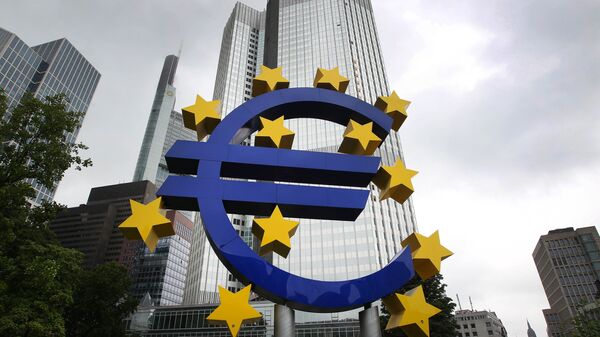The European Central Bank (ECB) will start experimenting with a digital version of the euro that could be used as an equivalent to cash.
“The euro belongs to Europeans and our mission is to be its guardian,” ECB President Christine Lagarde said as the bank published a study into the benefits and drawbacks of a digital currency. “This means making sure the euro is fit for the digital age. We should be prepared to issue a digital euro, should the need arise.”
That need could arise if cash use fell dramatically, for instance due to the impact of COVID 19 with large numbers of people shunning notes and coins in favour of card payments.
Similarly, the roll-out of the digital euro could be accelerated if another digital currency, such as the proposed digital yuan, gained in popularity.
In September, Gen, a think tank focused on emerging technology predicted that a digital yuan would not unseat the U.S. Dollar but does represent a serious challenge to the euro, arguing that the EU needs to implement a digital Euro by 2025 to prevent this from happening.
“A digital euro may even become essential in a number of possible scenarios,” said the ECB’s report. For example, if the use of cash were to decline significantly, other electronic payment methods were to become unavailable owing to extreme events.”
The ECB has yet to set out detailed proposals for the way this digital euro would work, but transactions could either be administered centrally by Frankfurt, or through the wider banking and payments system.
A central-bank digital currency would allow euro-area residents to place deposits with the ECB directly, effectively by-passing the current system based on high street banks. Currently, only commercial lenders, governments and other central banks can make deposits with the ECB directly.
The ECB report urged a look at “whether a digital euro should be accessible by households and firms directly or indirectly through intermediaries, whether it would be remunerated, and whether digital euro holdings of individual users should be limited.”
The central bank could also impose other controls, such as limits on holdings of the digital currency to try to stop the payment system being used for investment purposes.
“The amount of digital euro that individual users could hold would be kept within a range such that the overall value of the digital euro in circulation would remain below an aggregate threshold deemed reasonable,” the ECB said.
The proposals would also mean that the digital euro would not be an anonymous currency, such as bitcoin.
“This would require every digital euro user to be identified at least during onboarding: anonymity would not be possible in order to avoid the circumvention of restrictions by impersonating multiple users,” said the ECB.
Despite this, there are risks associated with introducing a digital euro that the ECB is keen to address. Not least is that during a financial crisis, depositors could simply withdraw their deposits from commercial banks in favour of the – seeming more secure - central bank’s digital currency, thereby potentially destabilising the European financial system.

